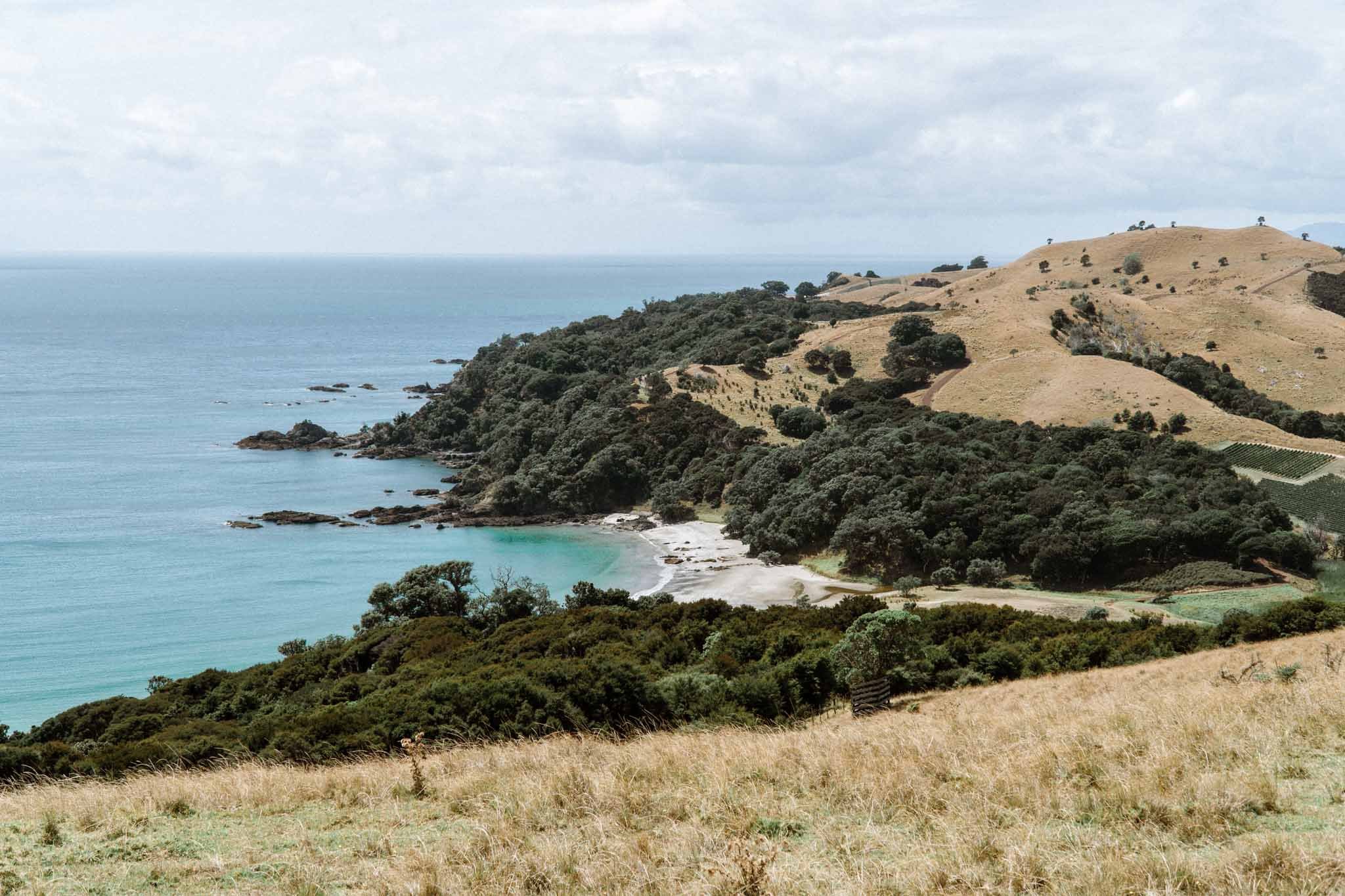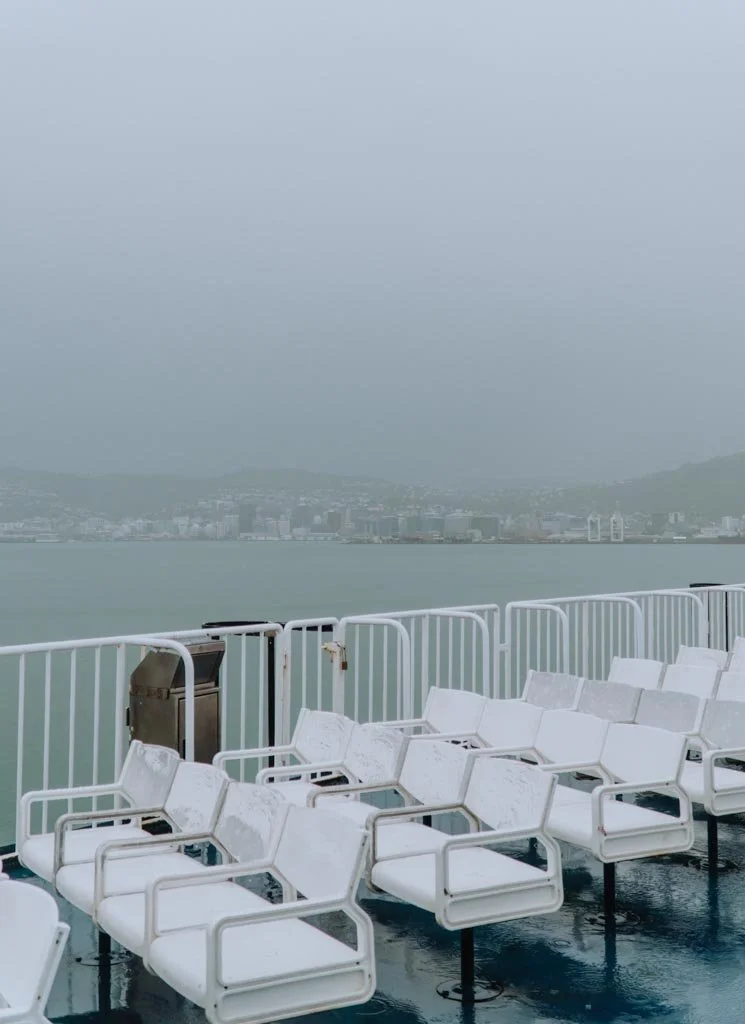How to get around New Zealand without a car
My tips on the best ways to travel around New Zealand without driving
The Coastal Pacific train
Disclosure This post contains affiliate links, meaning I may earn a commission if you make a purchase by clicking a link (at no extra cost to you).
When I lived in a four-bedroom flatshare in Auckland, all four of us had a car. One per person. A standard occurrence in New Zealand.
New Zealand’s population is small for its size, so cities and towns are spread out.
Because of this, most locals get around with a car — New Zealand has one of the highest rates of vehicle ownership in the world. We’re highly dependent on private vehicles, and as a result have terrible public transport.
It’s limiting, often expensive, and very time consuming.
A case in point; there is only one national bus company (Intercity).
If you don’t drive, or prefer not to drive, it is possible to travel around New Zealand by public transport — it’s just a little more difficult and your itinerary might not be as flexible.
One of New Zealand’s trains — there are only three inter-city train routes in the whole country
I didn’t buy my first vehicle (a campervan) until I was in my late twenties. I managed to get around on Intercity buses, public bus in Auckland, and via lifts from friends, but I won’t lie — it was a challenge.
These days, I have my own car, but every now and again I find myself without wheels. If I fly to the South Island, for example, and don’t want to hire a car, I manage to get around with shuttles.
I have also taken all of the scenic trains in New Zealand, so I have a decent grasp on how they work and which ones are worth it.
So — here’s my two cents on a New Zealand itinerary without a car; I haven’t done this exact route, just bits and pieces of it at various points in time.
An itinerary for New Zealand without a car
Queenstown is an ideal base if you don’t have a car, with a range of day trips and shuttle transport options you can take advantage of
This itinerary is possible in around two weeks.
If you have less time, you could skip the middle part and just focus on Auckland and Queenstown, both of which have plenty of day trip options which make getting around without a car much easier.
I’ll go into a lot more detail below, but here is a rough overview:
Fly into Auckland and visit local highlights (like Tiritiri Matangi or Waiheke Island) by ferry and bus.
Head to Rotorua via Hobbiton with a one way tour.
Explore Rotorua, then catch a flight to Wellington to check out the capital city.
Take a ferry to the South Island.
Explore the Marlborough Sounds
Take the Coastal Pacific Train from Picton to Kaikoura.
Take the train the rest of the way to Christchurch
Take the Tranzalpine train to Greymouth.
Take the Intercity bus to Franz Josef
Take the bus from Franz Josef to Wanaka or Queenstown
Go on a Doubtful Sound or Milford Sound trip from Queenstown
From Queenstown, fly to Auckland or your other departure airport.
Start in Auckland and explore the islands in the Hauraki Gulf
Auckland doesn’t have the best public transport in the world, but it does exist. From the airport it’s often easier to get an Uber into the city centre. From there, you can use the city buses to get around (Auckland is the only city in New Zealand where you can tag on and off buses with just a credit/debit card) or the network of ferries.
The wonderful thing about Auckland is that it’s right on the edge of the Waitemata Harbour, which is dotted with islands.
Ferries leave from the Britomart terminal in downtown Auckland, linking you up with some easy day trips.
There’s Waiheke Island, which is the easiest one to visit, and where you can find beaches and wine.
But there’s also Tiritiri Matangi, a bird sanctuary and an ideal destination for if you like wildlife.
And Rangitoto, the volcanic cone rising out of the harbour — there are walking trails around the rocky shore, and up to the volcano’s peak.
I also love Rotoroa Island, which is great for walking trails, spotting birds, and swimming. A neat option is to combine Rotorua Island with Man O War vineyard on Waiheke Island, so you can get the best of the islands — beaches and walking, followed by waterfront food and wine.
You can catch the ferry to Devonport and walk up to North Head for panoramic views.
FEATURED STAY
Hotel Britomart
Located only a few minutes walking from the ferry terminal, Hotel Britomart is perfectly positioned and one of the most unique hotels in Auckland.
Head to Rotorua via Hobbiton or Waitomo
Because Rotorua is such a popular destination in the North Island, there are a number of tours that leave from Auckland and finish up there.
On the way, you could choose to visit either the Waitomo Glowworm Caves, or Hobbiton.
I personally don’t enjoy the main Waitomo cave tour (it’s busy, very touristy, and was fairly unsatisfying). I much prefer the caves you can visit with smaller operators (like Spellbound), but I can’t see any day tours that go for those caves instead of the main ones.
If you want to see glowworms, but don’t like the sound of Waitomo, there is an option to go glow worm kayaking from Rotorua — no car needed (they will pick you up in a shuttle from the centre of town).
So, Hobbiton may be a better option, if that’s your thing.
You could also take an Intercity bus straight to Rotorua, if the idea of either of these options doesn’t appeal.
Explore Rotorua
Rotorua itself isn’t a big town, so if you stay somewhere central you can see a lot on foot.
Stroll around Kuirau Park and try the free foot baths, go for a wander through Ohinemutu Village to see Maori carvings and geothermal activity in one place, or walk around the lakefront to Sulphur Point.
If you want to visit a geothermal park, there’s the option of catching shuttle transport from town.
Check out The Mud Run — a shuttle option that will get you to either Wai O Tapu or Waimangu (if I had to choose one of those, I would go for Waimangu).
Other activities, like a dinner and performance at Maori village Te Pa Tu, include transport from the centre of town.
Or there’s the Polynesian Spa on the edge of the lake, which is a laid-back way of experiencing the area’s thermal waters (look for deals on BookMe — they often have discounts).
Catch a flight to Wellington to check out the capital city
From Rotorua, you can hop on a flight to Wellington (you could equally skip straight to Christchurch — the only South Island city you can reach on a direct flight from Rotorua).
Domestic flights out of airports like Rotorua are nice and easy to navigate. You only have to be there 30 minutes before your flight, there’s almost no security, and there are scarcely any lines.
There is a public bus that runs from the centre of Rotorua out to the airport, but it’s only once an hour. If you plan on taking the bus, instead of an Uber, it might be worth getting yourself a Bee Card, which is a preloaded transport card you can use in both Rotorua and Queenstown to get around.
Wellington is small and easy to explore on foot.
Take a ferry to the South Island
Leave at a time when it will still be daylight sailing into Picton — the views of the Marlborough Sounds are stunning.
There are two ferry companies that connect the North and South Islands via the Cook Strait – the Interislander and Bluebridge.
I usually go with Bluebridge, and that’s probably the easier option if you’re travelling without a car as the ferry terminal is right in the centre of town (Interislander is a 15 minute drive from the centre).
The crossing time is around 3.5 hours. Prices vary, but you’ll pay around $60 for a walk-on fare.
I travelled as a foot passenger from Wellington to Picton, then caught a water taxi into the Marlborough Sounds to hike the Queen Charlotte track.
It was an awesome trip and really easy to arrange without a car.
If you’ve got an InterCity FlexiPass or TravelPass, the ferry is included, so you can continue your bus journey on the other island.
Visit the Marlborough Sounds
Picton, the ferry port in the South Island, is the gateway to the Marlborough Sounds; a series of drowned valleys at the top of the South Island.
The watery maze of sounds is divided by green ridges of land which shelter calm bays and hide beautiful walking tracks. From Picton, you can catch water taxis into the Marlborough Sounds, for either day walks or an overnight walk on the Queen Charlotte Track.
If you want to dip a toe into multi-day hiking in New Zealand, without needing any hiking gear and with the opportunity to sleep in a real bed each night, this might pique your interest.
The Queen Charlotte hike is a multi walk through the Marlborough Sounds. It’s a beautiful trek and accessible to hikers of different fitness levels, as you can send your overnight bag to your next stop via water taxi.
You can also spend the night in lodges along the trail, instead of the typical backcountry huts you encounter on overnight hikes in the South Island.
That means that after a day of walking through lush native forest and skirting around turquoise bays, you can have a hot shower, a real bed, and enjoy a meal at a waterfront restaurant.
Alternatively, you could just spend a night in a boat-access-only lodge in the Sounds, like Lochmara Lodge, Furneaux Lodge, or Punga Cove.
I have stayed at Punga Cove while walking the Queen Charlotte track and loved being away from it all, having dinner overlooking the water.
Take the Coastal Pacific Train from Picton to Kaikoura
Once back in Picton, you could hop on the Coastal Pacific train that travels down the east coast of the South Island (of course, you could always skip Marlborough Sounds and jump straight on this train when you arrive on the ferry — it departs Picton around 1pm each day).
The Coastal Pacific is a very pretty train journey, and if I had to pick one of the three scenic train journeys in New Zealand, I would go for this one.
After leaving Picton, the train clatters and clacks through Marlborough’s wine country, before reaching the Pacific coast.
From there, it skirts beaches the whole way down to Kaikoura, with mountain ranges visible on the opposite side.
It’s worth stopping in Kaikoura for at least a night, even two if you have the time. From here you can easily take whale watching boat tours, or swim with dolphins.
The Sudima Kaikoura is right across the road from Dolphin Encounter, so if dolphin watching is on your to-do list it’s a very convenient place to stay.
Take the train the rest of the way to Christchurch
Take the Tranzalpine train to Greymouth.
Head to Franz Josef
Take the bus to Wanaka (or Queenstown)
Visit Fiordland from Queenstown
Fly out of Queenstown
Thanks for reading this far! I hope this helped give you an idea of what the best way to travel New Zealand is. If it’s in your budget, I really recommend a campervan — it’s such an awesome experience!
Before you go, you might also like to read these posts:







